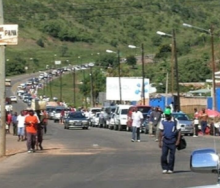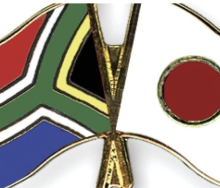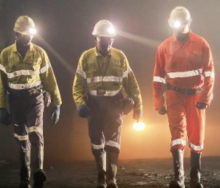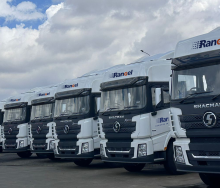South Africa’s constrained business environment, amplified by weak consumer demand and the recent Easter holidays, negatively impacted the new vehicle market’s performance in March.
But the industry remains upbeat on the outlook for the remainder of the year as prospects of an interest rate cutting cycle and improved economic growth mount.
According to the latest data released by the Automotive Business Council (Naamsa) aggregate domestic new vehicle sales in March 2024 were 44 237 units, reflecting an 11.7% decline of 5 877 units from 50 114 vehicles sold in March 2023.
“Export sales recorded a decline of 8 975 units, or 27.1%, to 24 161 units in March 2024 compared with the 33 136 vehicles exported in March 2023. Overall, out of the total reported industry sales of 44 237 vehicles, an estimated 39 016 units, or 88.2%, represented dealer sales, an estimated 6.0% represented sales to the vehicle rental industry, 3.5% to government, and 2.3% to industry corporate fleets,” said Naamsa.
The new passenger car market sold 26 577 units, a decline of 5 024 cars, or a loss of 15.9%, compared with the 31 601 units sold in March 2023. Car-rental sales accounted for 7.8% of new passenger vehicles sales during the month.
Domestic sales of new light commercial vehicles, bakkies and minibuses recorded a decline of 672 units, or a loss of 4.3% to 14 870 units.
Sales of medium and heavy trucks also reflected a weak performance with 726 and 2 064 units sold respectively. This reflects a 15.8% decline in the number of medium commercial vehicle sales and a 2.1% drop in the sales of heavy trucks and buses compared with March 2023.
Exports sales declined 27.1% to 24 161 units reflecting a decrease of 8 975 vehicles compared with the 33 136 vehicles exported in March 2023.
“For the first quarter 2024 exports were now 4.9% below the corresponding quarter 2023. The new vehicle market continued its downward slope in March 2024, which already commenced eight months ago. For the first quarter 2024, aggregate new vehicle sales were now 5.3% below the corresponding quarter in 2023,” Naamsa said.
“The effect of the South African Reserve Bank’s aggressive monetary policy stance by hiking interest rates in an attempt to contain inflation took some time to filter through to new vehicle sales, which continue to add to the prevailing negative sentiment. Due to ongoing cost pressures, including escalating fuel costs, along with interest rates, affordability remains a decisive factor in purchasing decisions as consumers increasingly turn to more budget-friendly vehicles.”
The SARB forecasts gross domestic product growth of 1.2% in 2024.
“Only once the interest-cutting cycle commences, likely during the second half of the year, along with the easing of inflation, are better economic prospects expected for the new vehicle market,” said Naamsa.
It said prospects for the new vehicle sales market for the rest of the year “remain upbeat” on the back of new model introductions by major exporters, while the global economic cycle is expected to bottom out in the first half of 2024.
“Lower inflation, central bank easing and modest global economic growth are therefore expected to support the South African automotive industry’s export performance,” said Naamsa.













